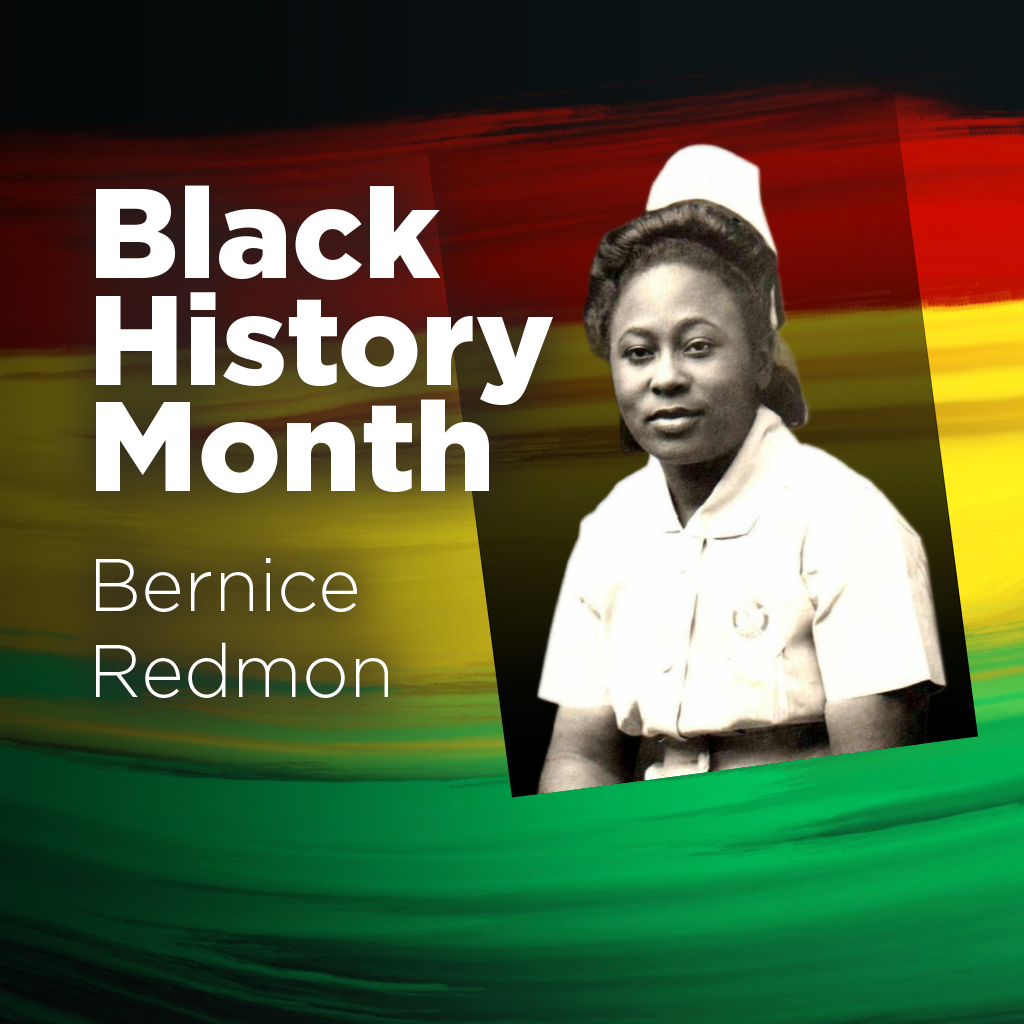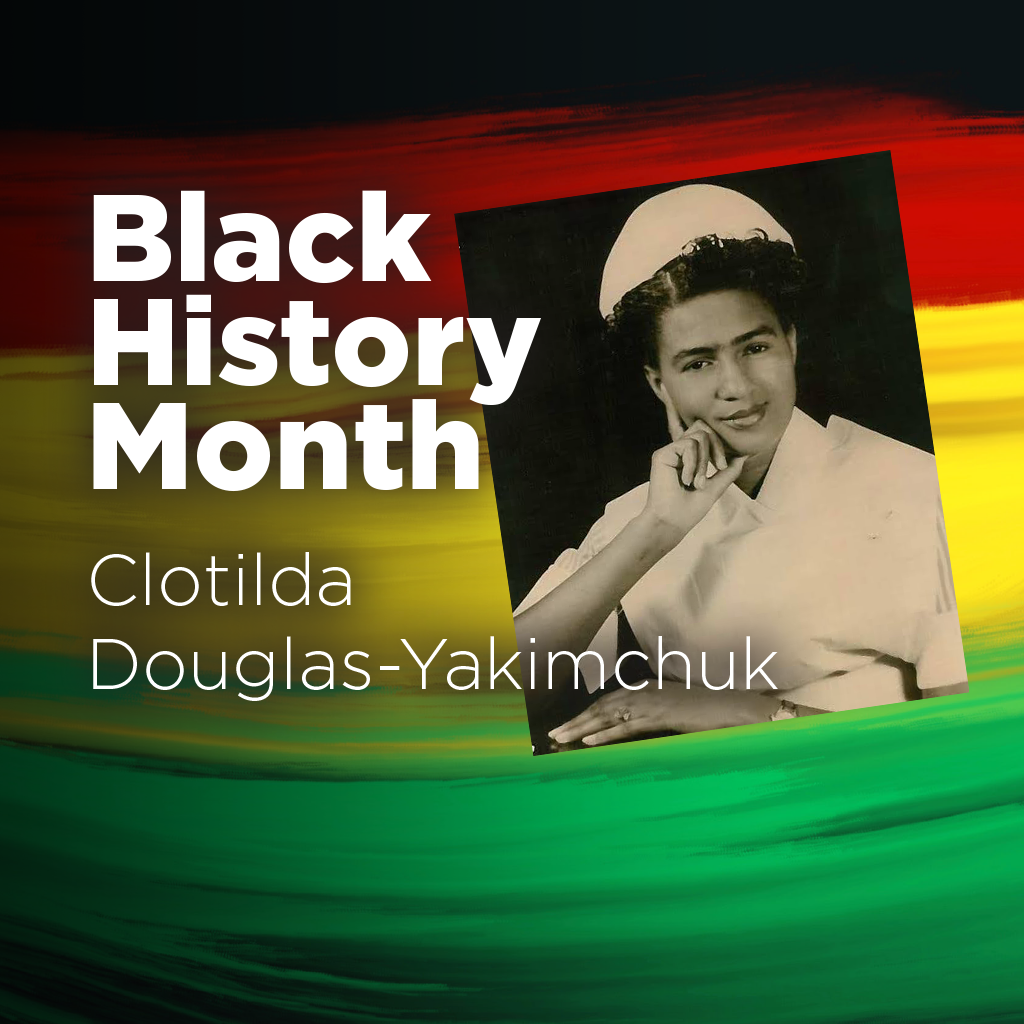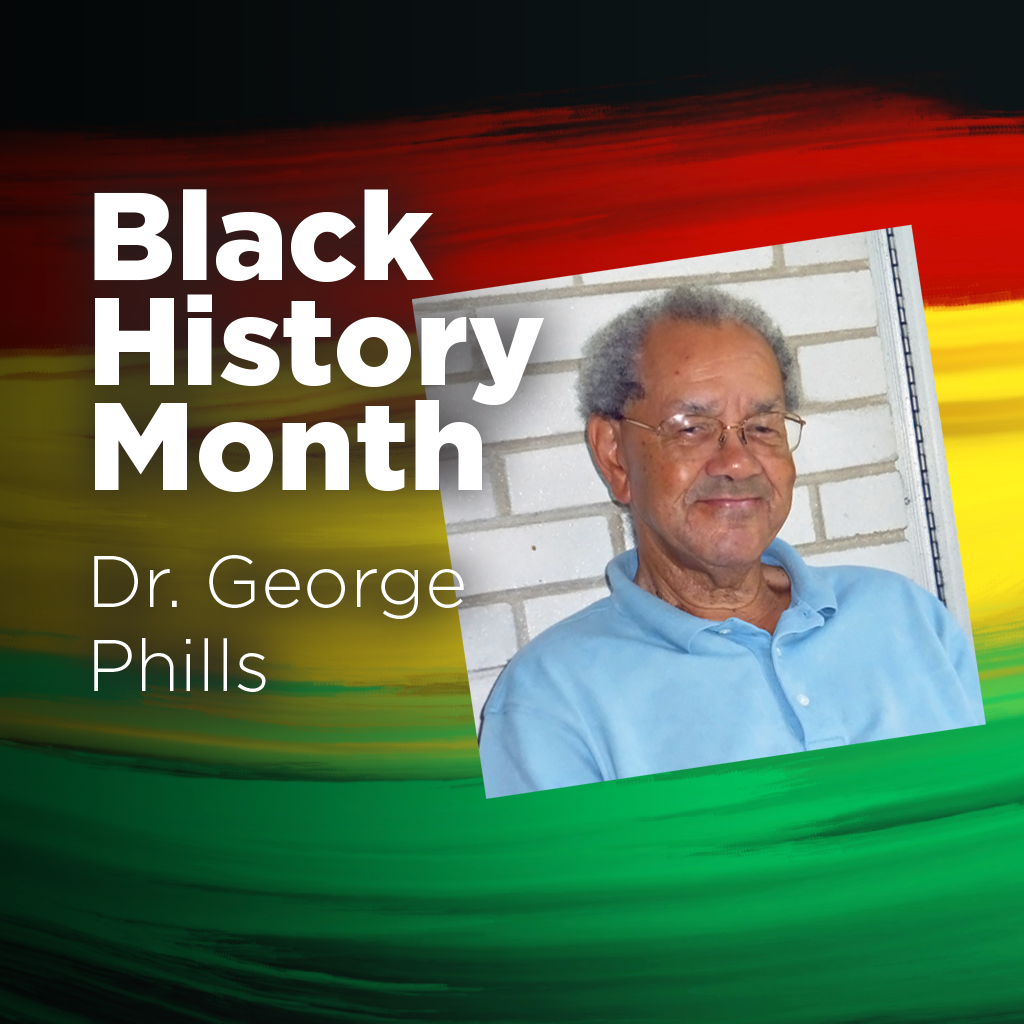In honor of Black History Month, we recognize and celebrate the invaluable contributions of Black Canadians to the health care sector. Their resilience in the face of adversity, including racism and unequal opportunities, has empowered them to break barriers and achieve remarkable milestones. These trailblazers became pioneers in their respective fields, driving significant advancements in healthcare and social justice within their communities, while also paving the way for future generations.
Below, we highlight the biographies of Bernice Redmon and Clotilda Douglas-Yakimchuk, who made notable contributions to nursing; Dr. Sophia Bethena Jones, the first Canadian to earn a medical degree; and Dr. George Phills, a psychologist whose work significantly impacted the well-being of children and families.
Bernice Redmon
Bernice Redmon (nee Carnegie) was born in Toronto on October 28, 1917. She made history as the first Canadian-born Black registered nurse, and the first Black nurse to be employed by the Victorian Order of Nurses (V.O.N.).
Her nursing journey was not without its challenges, as Canadian nursing schools in the 1940s did not admit Black students. In response, Bernice moved to the United States, where she earned her nursing degree from the St. Philips School of Nursing in Virginia. Demonstrating remarkable academic ability, she excelled in her studies and was awarded a scholarship to pursue an additional year of training, specializing in public health nursing.
Bernice graduated in 1945; she returned to Canada that same year, where she began her career with the Nova Scotia Department of Health, becoming the first Black nurse to practice in public health. Her ground-breaking work in the field opened doors for Black women to work and train in Ontario hospitals starting in the late 1940s and 1950s.
To learn more about Bernice Redmon, please go to: https://www.bernicecarnegie.com/carnegie-family

Clotilda Douglas-Yakimchuk
Clotilda Douglas-Yakimchuk was born and raised in Whitney Pier, Nova Scotia. In 1954, she made history as the first Black individual to graduate from the Nova Scotia Hospital School of Nursing. She went on to earn post-graduate diplomas in midwifery from Colony Hospital, Grenada, West Indies; and adult education from St. Francis Xavier University; as well as a post-graduate certificate in psychiatric nursing from the Nova Scotia Hospital.
Throughout her distinguished 50-year career in nursing, Clotilda served in various roles, including as a staff nurse, nursing supervisor, and Director. She also held the esteemed position of President of the Registered Nurses’ Association of Nova Scotia (now The College of Registered Nurses of Nova Scotia), and was the only elected Black President in the college’s 100-year history.
Beyond her nursing career, Clotilda was a passionate community advocate and a proponent of lifelong learning. She was the founding President of the Black Community Development Organization, an organization that championed causes such as affordable housing and improvements to seniors’ living facilities. Clotilda also played a key role in advocating for the establishment of a nursing degree program at Cape Breton University.
Clotilda retired from nursing in 1994. In recognition of her lifetime of activism and exceptional service to her community and the nursing profession, she was appointed to the Order of Canada in 2003, the Order of Nova Scotia in 2018, and received an honorary Doctorate of Laws from Cape Breton University in 2010.
To learn more about Clotilda Douglas-Yakimchuk, please go to: https://museumofhealthcare.blog/black-history-month-clotilda-douglas-yakimchuk/

Dr. Sophia Bethena Jones
Dr. Sophia Bethena Jones was born in Chatham, Ontario, on May 6, 1857. Her parents were involved in the Canadian abolitionist movement, and their activism was said to have inspired Dr. Jones’ to forge a path for women in the medical field.
In 1879, Dr. Jones began studying Biology at the University of Toronto; however, due to pervasive racism and sexism, she was denied the opportunity to continue her studies at the university’s medical school. Undeterred, she pursued her dream of becoming a physician and was accepted into the University of Michigan Medical School in 1880. In 1885, Dr. Jones made history as the first Black woman to graduate from the school with a medical degree. Dr. Jones also holds the distinction of being the first Black Canadian to earn a medical degree.
Dr. Jones went on to teach medicine at Spelman College in Atlanta, Georgia as the first Black faculty member. She then continued her medical practice across the United States.
Dr. Jones was also a pioneer in medical research, being one of the first Black women to publish in the field. Her influential research, “Fifty Years of Negro Public Health,” was published in the Annals of the American Academy of Political and Social Science in September 1913. In this work, she highlighted the health disparities within Black communities, the long-term effects of intergenerational trauma from slavery, and advocated for equity in healthcare for all.
To learn more about Dr. Sophia Jones, please go to: https://museumofhealthcare.blog/black-history-month-dr-sophia-bethena-jones/

Dr. George Phills
Dr. George Phills was a distinguished Black psychologist who dedicated his life to serving his community and improving the well-being of children. Born in Sydney, Nova Scotia to Mary Alda Phills and Isaac Phills, Dr. Phills’ parents instilled in him the values of family, community, education, and perseverance from an early age. He pursued higher education at King’s College in Halifax, earned a Master’s in Clinical Psychology from Dalhousie University, and obtained a PhD in Clinical Social Psychology from the University of London in England.
Following the completion of his studies, Dr. Phills returned to Sydney, where he headed a child guidance clinic. He later moved to London, Ontario, where he embarked on a 22-year long career with the London Board of Education—initially as a Consulting Psychologist and later, as Chief Psychologist. Dr. Phills developed several programs throughout his tenure, including the Early Identification Process, the Social Skills Project, and the Tragic Event Response Team. In addition to his professional work, Dr. Phills supported individuals facing family challenges and systemic racism, served on the boards of numerous mental health organizations in London, taught at Western University, and was instrumental in establishing the Ontario College of Psychology.
Dr. Phills’ outstanding contributions to both his profession and his community were recognized through numerous prestigious awards, including the Bea Wicket Award (1990), the Frank Brennan Award (1995), and the Distinctive Service Award from the London and Region Psychological Association (1996). To learn more about Dr. George Phills, please go to: https://www.canada.ca/en/canadian-heritage/campaigns/black-history-month/black-canadians.html#s6

If you have any questions, or would like to provide feedback related to equity, diversity, and inclusion, please contact Rae-Anne Robinson, Equity, Diversity & Inclusion Coordinator at rae-anne.robinson@tbh.net, or the Equity, Diversity, and Inclusion Steering Committee at tbrhsc.edisteeringcommittee@tbh.net.
